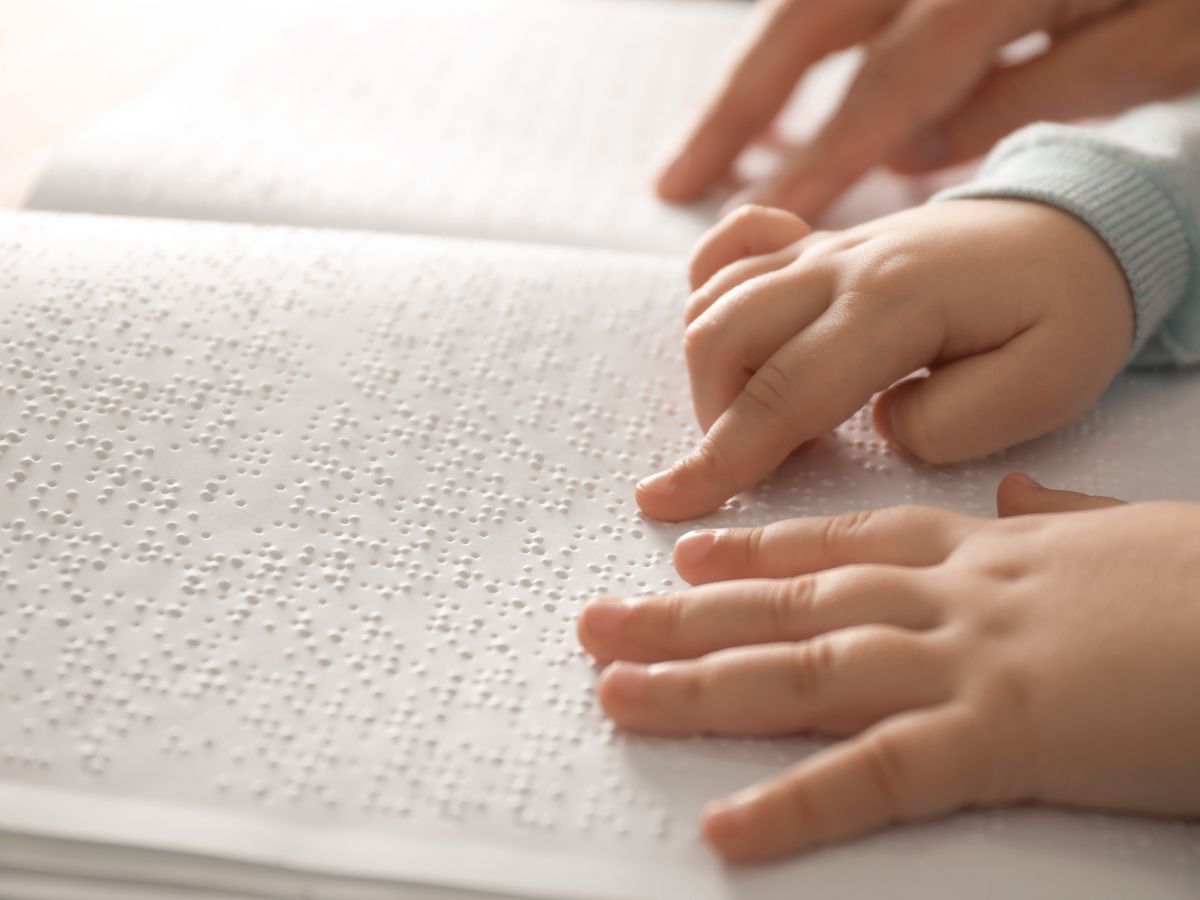Summary
This World Braille Day, RSBC looks at some of the many benefits that learning Braille can bring.
We’re used to hearing about how rapid advances in technology are going to level the playing field for those with disabilities. But the fact is that Braille is still the key that unlocks independence for those who are blind or partially sighted – an amazing achievement for a system that was first presented in 1824 by Louis Braille.
Using a grid of six raised dots arranged in two columns of three dots each, with each combination of dots representing a letter, number, or punctuation mark, it’s a simple and efficient system with an array of benefits.
Juliette, Engagement Officer at the Royal Society for Blind Children (RSBC) and a Braille user, was born with a visual impairment and knew that her vision was deteriorating. She decided to learn Braille to prepare for the future. She admits that it was a bit daunting at first, but having now mastered it herself, she says she’d encourage others to try it. “Anybody who’s thinking about learning Braille, you’ll hear that it’s really difficult. It can be, but I think it’s worth giving it a go anyway, because it’s such a useful skill to have. You might find that you really enjoy it!” Read more about Juliette’s story: Juliette’s Braille journey.
As a Braille advocate, RSBC is dedicated to ensuring that children with visual impairments have access to the opportunities as sighted children.
How Braille can transform lives
1. Opening up a world of communication
Braille helps develop the essential skills of spelling, punctuation, and grammar. While some people may prefer to get their information via audio, reading Braille can help with comprehending, engaging with, and retaining text information, especially if it’s long or complicated. You can join the ClearVision library to receive free children’s books in print and braille, and tactile books.
2. Helping with learning maths and science
Because they’re visual in nature, science and maths can be challenging for blind and partially sighted people. However, Braille can help with their learning because of its equivalents for symbols, meaning that they have the opportunity to excel in these subjects.
3. Helping promote equality and accessibility
Braille literacy provides blind and partially sighted people with vital access to the written word, and that fosters greater equality in society. The ability to read and write Braille opens doors to independence, offering the same use, power, fluidity, and enjoyment of written language that sighted individuals experience. And Braille labels on everyday items, medicines, and signage in public spaces help to contribute to a more accessible environment overall.
4. Providing empowerment and boosting self-esteem
Being literate in Braille is crucial for self-confidence – it means that blind and visually impaired people can express themselves through the written word. Because they’re able to understand and engage fully with written texts, they can manage their day-to-day life independently.
5. Bringing employment opportunities

It’s been shown through various studies that those with sight loss who have skills in Braille are more likely to be employed. Through using electronic Braille notetakers, users can take notes in meetings, training sessions and presentations. And when a workplace accommodates Braille and other assistive technologies to help their blind and partially sighted employees use the tools that best suit their needs, a more inclusive environment is the result. Wecapable, an online Braille typewriter, is one of the easy-to-use tools that can help you type in Braille and copy the Braille code. You can also learn more about the current trends, software, and apps with the RSBC Accessible Technology sessions, by Alex, our Assistive Technology Officer.
While Braille may be viewed more generally as just reading and writing, it’s much more than that. It continues to play a crucial role in the lives of people with visual impairment, giving them independence, confidence, equality, and employment opportunities.
You may also like…
